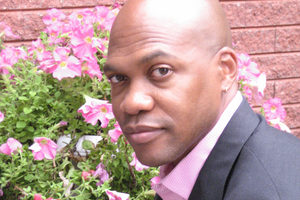E. Patrick Johnson challenges the stereotypes of the South with his latest book, “Sweet Tea: Black Gay Men of the South,” an oral history collecting life stories from black gay men who were born, raised and continue to live in the southern United States.
The out author from North Carolina conducted interviews with more than 70 black gay men between ages 19-93 and, in the process, dispelled some of the preconceived notions that he himself held.
“I thought there would be nothing I would learn that I didn’t sort of already know,” he said. “I thought that everyone would be Baptist, Methodist or Pentecostal. But I found a whole range of religious faiths. I found someone who was Muslim. I interviewed atheists. I interviewed people who were trying new kinds of spirituality.”
He also discovered that gay sexuality wasn’t as repressed during certain eras as he originally thought.
“The other thing that was surprising to me was the amount of sexual activity that was going on at historically black colleges, especially in the ’50s, ’60s and ’70s,” he said. “There were a number of men whom I spoke to talked about how homosexuality was not only tolerated but, in some instances, it was commonly known that some of the professors were gay and that they would also sleep with some of the students. It wasn’t a big issue.”
Johnson added he didn’t expect the older interviewees to be so candid about their sexuality.
“I thought that it would be the younger men that would be more forthcoming about their lives,” he said. “That ended up not being the case. A lot of the older men were much more open, especially talking about the sexual part of their lives. Part of that had a lot to do with the older men feeling they were at a stage in their lives where they didn’t really care what people thought about them.”
Johnson felt that some of the stories in “Sweet Tea” were too profound to leave on the page, and was inspired to turn them into a one-man show called “Pouring Tea.” In the show, Johnson portrays the interviewer and some of the men he interviewed in the making of the book.
“It was about a year into the research when I started to encounter wonderful storytellers; men who knew how to tell a fabulous story and whose words wouldn’t necessarily be the same on the page,” he said of the show’s inspiration. “I decided that this work had to become some kind of performance, but I didn’t know at the time whether I would direct something and cast eight or nine people or if I would perform it myself. I don’t think I am a good director but I do think I’m a good performer. I was the one who was in that moment of the interview. I recalled some of the gestures and intonations. I decided to do the one-person show and it was the best decision to make.”
Whether people experience “Sweet Tea” live or on the page, Johnson said he hopes the stories will begin to fill in the void in African-American history, which has so far neglected to recognize LGBT issues and people.
“African-American studies in particular has been silent around issues of sexuality and, before that, it was silent about issues of gender,” he said. “The book is meant to be an intervention in the fields of African-American studies and history. There have been several histories of homosexuality in the South but none of them focused on race and region. This book is supposed to be the beginning of an archive for a history that no one has either thought about or knows about.”
E. Patrick Johnson hosts a reading at 5:30 p.m. April 26 at Giovanni’s Room, 345 S. 12th St. For more information, call (215) 923-2960.
Larry Nichols can be reached at [email protected].

